Iran’s Revolutionary Guard sends new satellite into space – stoking fears that launch will boost Tehran’s ballistic missile programme
Iran’s Revolutionary Guards have sent a new satellite into space, fueling fears in the West that the launch will boost Tehran’s ballistic missile program.
Iran’s Soraya satellite was launched into orbit about 750 km above the Earth’s surface on its three-stage Qaem 100 rocket, state news agency IRNA said.
It did not immediately reveal what the satellite did, although Telecommunications Minister Isa Zarepour described the launch as having a payload of 50 kg.
The satellite launch was part of the Iranian Revolutionary Guards Corps (IRGC) space program, in addition to Iran’s civilian space program, the report said, adding that the satellite had reached its highest orbit yet.
Alarm bells are ringing over the launch amid rising tensions in the region, with the US previously warning that Iran’s satellite program could help accelerate the development of an intercontinental ballistic missile.
Images released today by Iranian media showed the rocket blast from a mobile launcher
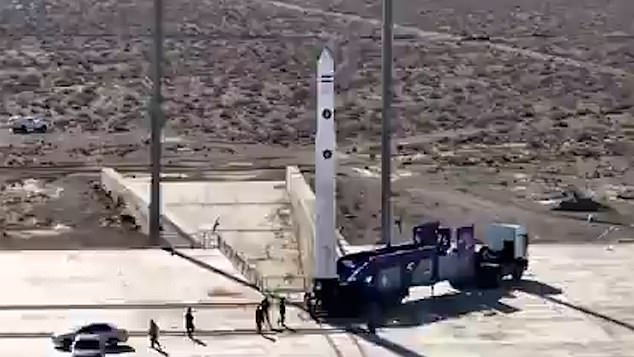
Analysis of the footage suggested the launch took place at the Guard’s launch pad on the outskirts of the city of Shahroud
Images released today by Iranian media show the rocket blast from a mobile launcher, with a religious verse on the side referring to Shia Islam’s twelfth hidden imam.
Analysis of the footage suggested the launch took place at the Guard’s launch pad on the outskirts of the city of Shahroud, about 350 kilometers east of the capital Tehran.
Iran’s three last successful satellite launches all took place at this location.
According to the Fars News Agency, the satellite has already started transmitting telemetry data after it was launched this morning.
Under Iran’s relatively moderate former president Hassan Rouhani, the Islamic Republic slowed its space program for fear of increasing tensions with the West.
Hardline President Ebrahim Raisi, a protégé of Supreme Leader Ayatollah Ali Khamenei who came to power in 2021, has pushed the program forward.
The US Intelligence Community’s 2023 Global Threat Assessment states that the development of satellite launch vehicles “shortens the timeline” for Iran to develop an intercontinental ballistic missile because it uses similar technology.
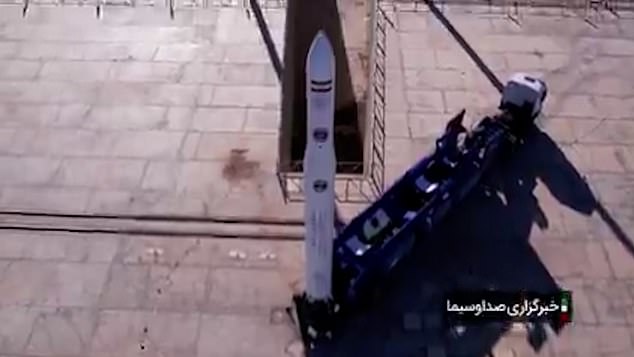
The footage reportedly showed a religious verse referring to Shia Islam’s twelfth hidden imam written on the side of the rocket.
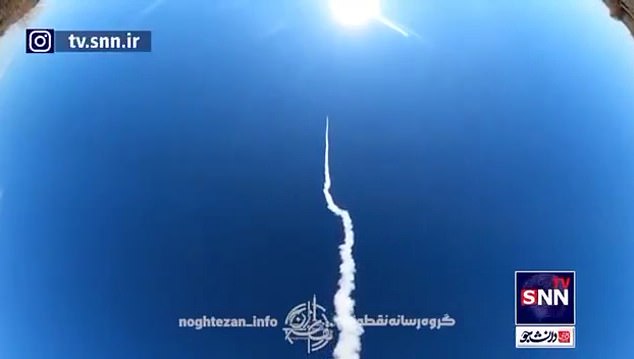
Iran’s Soraya satellite was placed into orbit about 750 kilometers above the Earth’s surface on its three-stage Qaem 100 rocket, state news agency IRNA said.
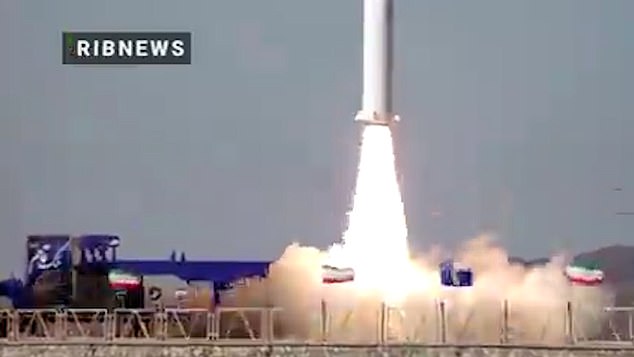
Iranian state media shared images on Saturday showing the satellite exploding
Intercontinental ballistic missiles can be used to deliver nuclear weapons.
Iran is now producing uranium near weapons-grade levels following the collapse of its nuclear deal with world powers.
Tehran has enough enriched uranium for “several” nuclear weapons if it chooses to produce them, the head of the International Atomic Energy Agency has repeatedly warned.
Iran has always denied having nuclear weapons and says its space program, like its nuclear activities, has purely civilian purposes.
However, US intelligence agencies and the IAEA say Iran had an organized military nuclear program until 2003.
The Guard’s involvement in the launches, as well as its ability to launch the missile from a mobile launcher, has raised concerns in the West. The Guard, which is accountable only to Khamenei, unveiled its space program back in 2020.
The US has previously said Iran’s satellite launches violate a UN Security Council resolution and called on Tehran not to engage in nuclear weapons-capable ballistic missile activities.
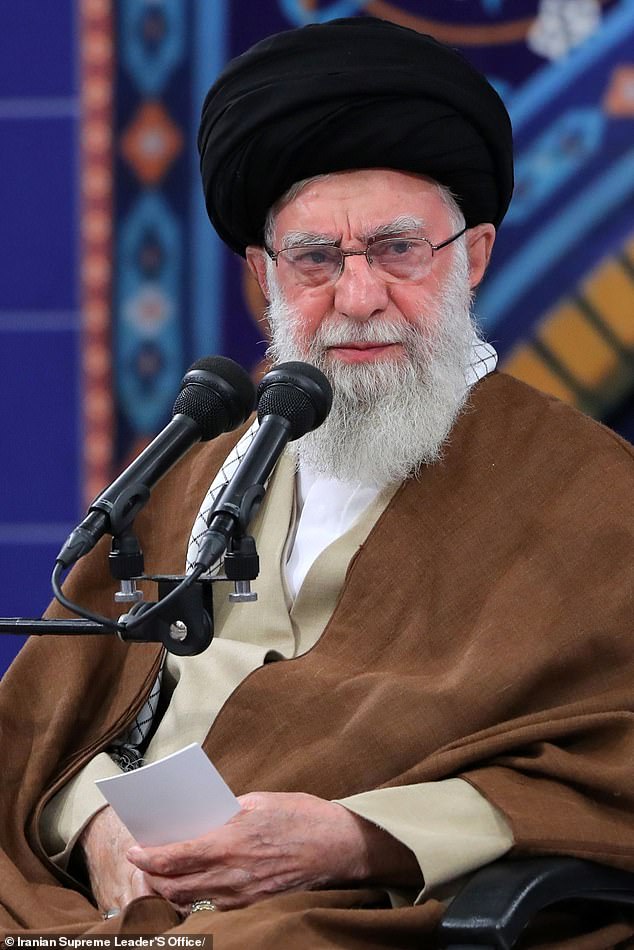
Hardline President Ebrahim Raisi, a protégé of Supreme Leader Ayatollah Ali Khamenei (pictured) who came to power in 2021, has pushed the program forward
UN sanctions on Iran’s ballistic missile program expired last October.
The US Intelligence Community’s 2023 Global Threat Assessment states that the development of satellite launch vehicles “shortens the timeline” for Iran to develop an intercontinental ballistic missile because it uses similar technology.
The announcement comes as heightened tensions grip the broader Middle East over Israel’s ongoing war against Hamas in the Gaza Strip, and just days after Iran and Pakistan carried out tit-for-tat airstrikes in each other’s countries.
It also came on the same day the IRGC said four of its members, including a spy chief and his deputy, were among those killed in an airstrike in Syria that it blames on Israel.
Meanwhile, the US is launching new attacks on Houthi rebels in Yemen, who have targeted shipping in the Red Sea during the war.
